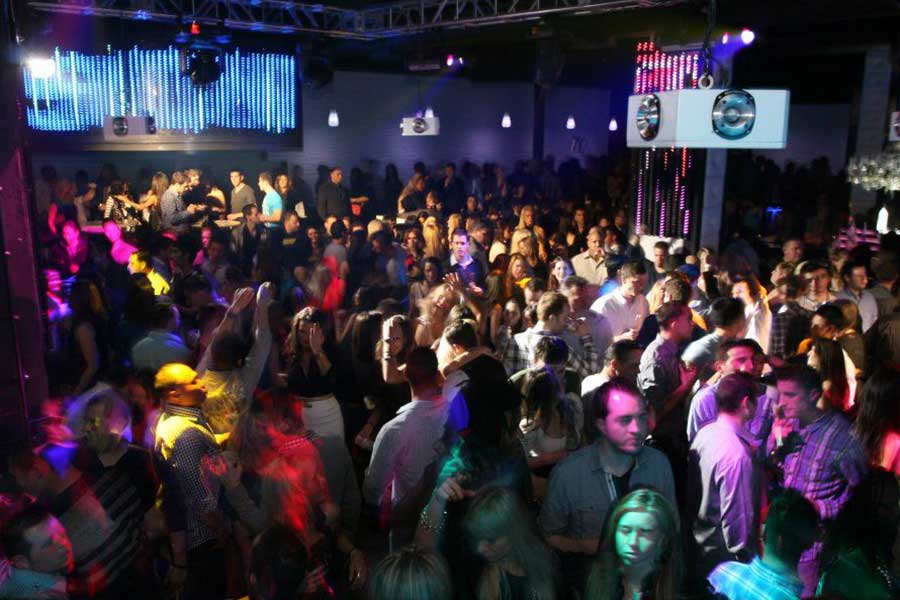As queer Latinx people, we know all too well that there are few places that are safe for us. Latin nights at either a local neighborhood bar or a staple gay nightclub in Center City, or a house party with friends or a random gathering on a hot summer night sitting on the stoop at Fifth and Tioga, feel like solace.
Sometimes those stoop gatherings become random block parties as we blast our music from the windows or from our phones. Sometimes solace is being with your crew, sharing headphones to listen to your favorite dance track, and while waiting to catch the El, you practice a new vogue move. Sometimes solace is drunkenly catching an Uber to the local McDonald’s at 4 a.m. or piling into the car of your girlfriends after a night out and eating the best tostones with garlic and Cheez Wiz from the corner chino store. Sometimes solace is taking an afternoon stroll to places like GALAEI and hanging out in the sala, or lobby, having lunch with no particular agenda and catching up on the tea. Solace we find not in the spaces we occupy, but the people we occupy them with.
Let’s be clear about something we’ve learned as gay Latin@s: No place is entirely safe, no building is a sanctuary. Cities like Philadelphia are not immune to this; we’ve watched how major nonprofits who claim to serve all our communities have failed us, exclude us from participating, even in mourning our deaths. Governments fail us and, yes, I am sure that even GALAEI has failed folks. That is because there is no road map to liberation, no blueprint for liberatory work, no guidelines for resistances and survival. We do what we gotta do, because we have always done it.
So one year later, we continue to do it with the people that hold us, we create solace with the people who bring us home. As queer Latinxs, we are always looking, either in the cities we reside in or in the next place of residence, for the echoes of what we abandoned or what abandoned us. That’s why we choose our sisters and bros, our amigxs, our sentidos of “familia.” We find them in the slang of our Spanglish, or the lilt of our English phrases, what has and always will be all the senses of our native tongues. And for many of us, that means finding them in the nostalgia of a hazy dance floor, at your favorite club, with your tribe that holds you down, where you enjoy temporary freedoms of being unanchored and fleeting, and to have these moments while inhabiting our queer bodies — those moments when our people walk in the door, someone lets out a screech and someone else takes a sip of your drink, and suddenly no one else mattered outside of our immediate circle. How do we manage to communicate in those noisy and sometimes smoky places? Through our bodies: a kiss on the cheek, a hand against the torso, always an embrace. We hug between dances and songs, press our bodies together on the crowded floor, sweat clashing into sweat. This intimacy, where do we learn it? It’s always inside the home of ourselves.
So we will continue to cherish those moments, as we dance through the pain of grief, one year later where nothing still makes sense. Where we danced through heartbreak, or the pain of our everyday encounters with micro-aggressions. Dance to cope with loss, or disappointing hookups or unfaithful girlfriends, and the unrequited desires of our secret crushes. Lights dimmed, sound system pumping, dancing, the best kind of emotional release. And we know, we have always known, that no place is safe — we are queer people of color, no place is ever safe for us, not even the gay club — so we will continue to create those sacred spaces with our tribe. And at least for the duration of a song, we can imagine a complete surrender to the music that transports us into the sheer enjoyment of a moment, not giving a damn, not explaining a single damn thing.
Galaei is a queer Latin@ social-justice organization that embodies the common history of resistance and resilience of Latin@ and queer people. For more information, visit www.galaei.org, call 267-457-3912, email [email protected] or visit GALAEI at 149 W. Susquehanna Ave.
